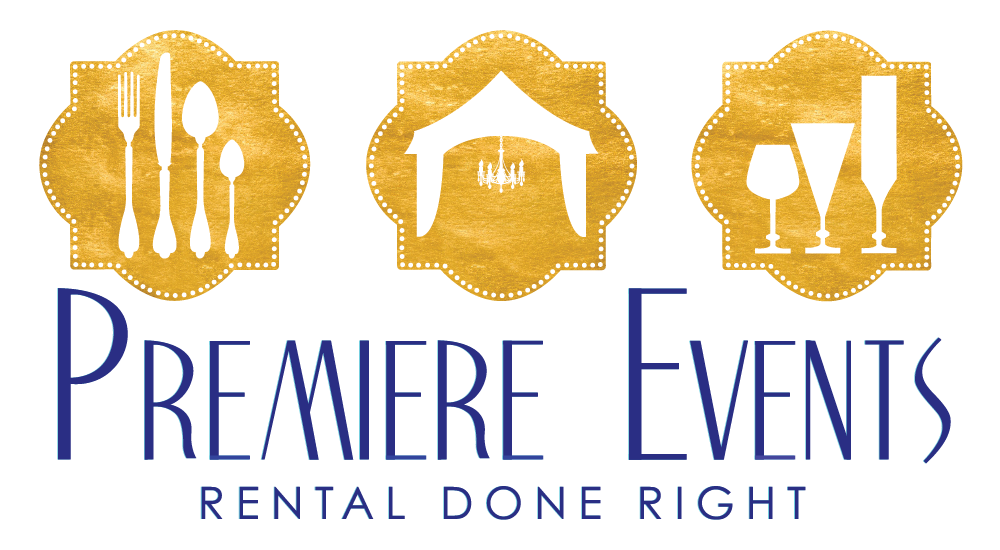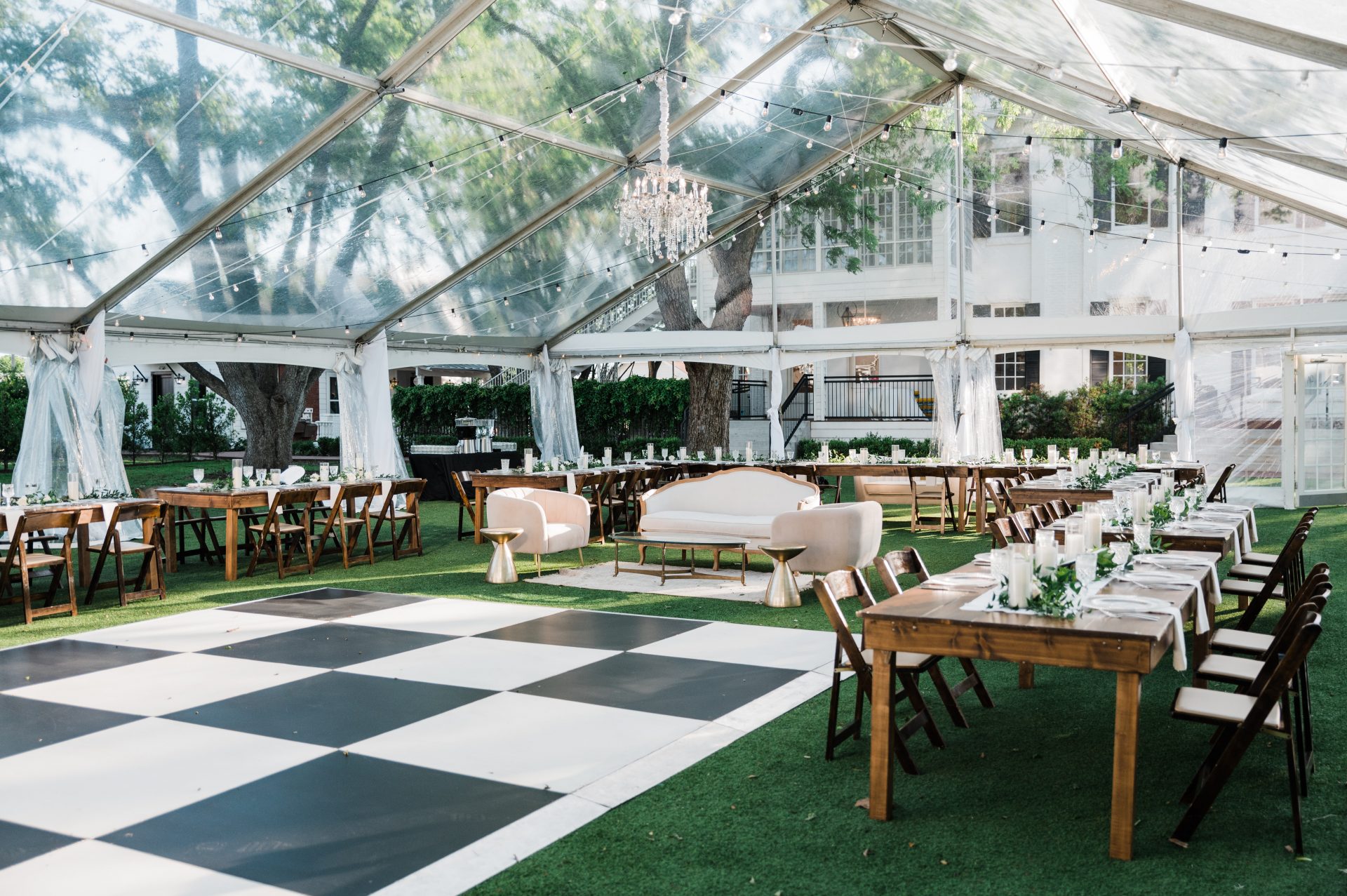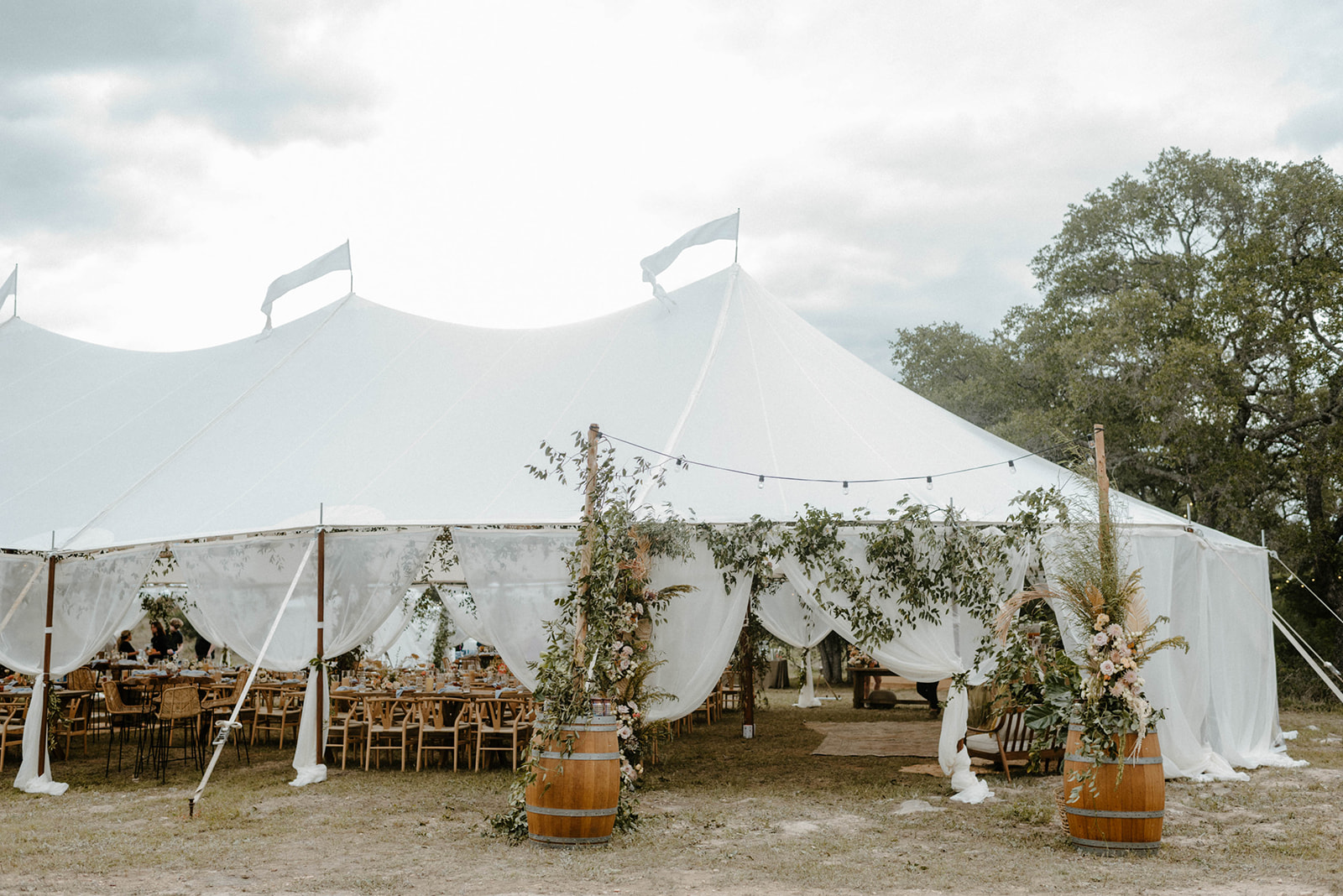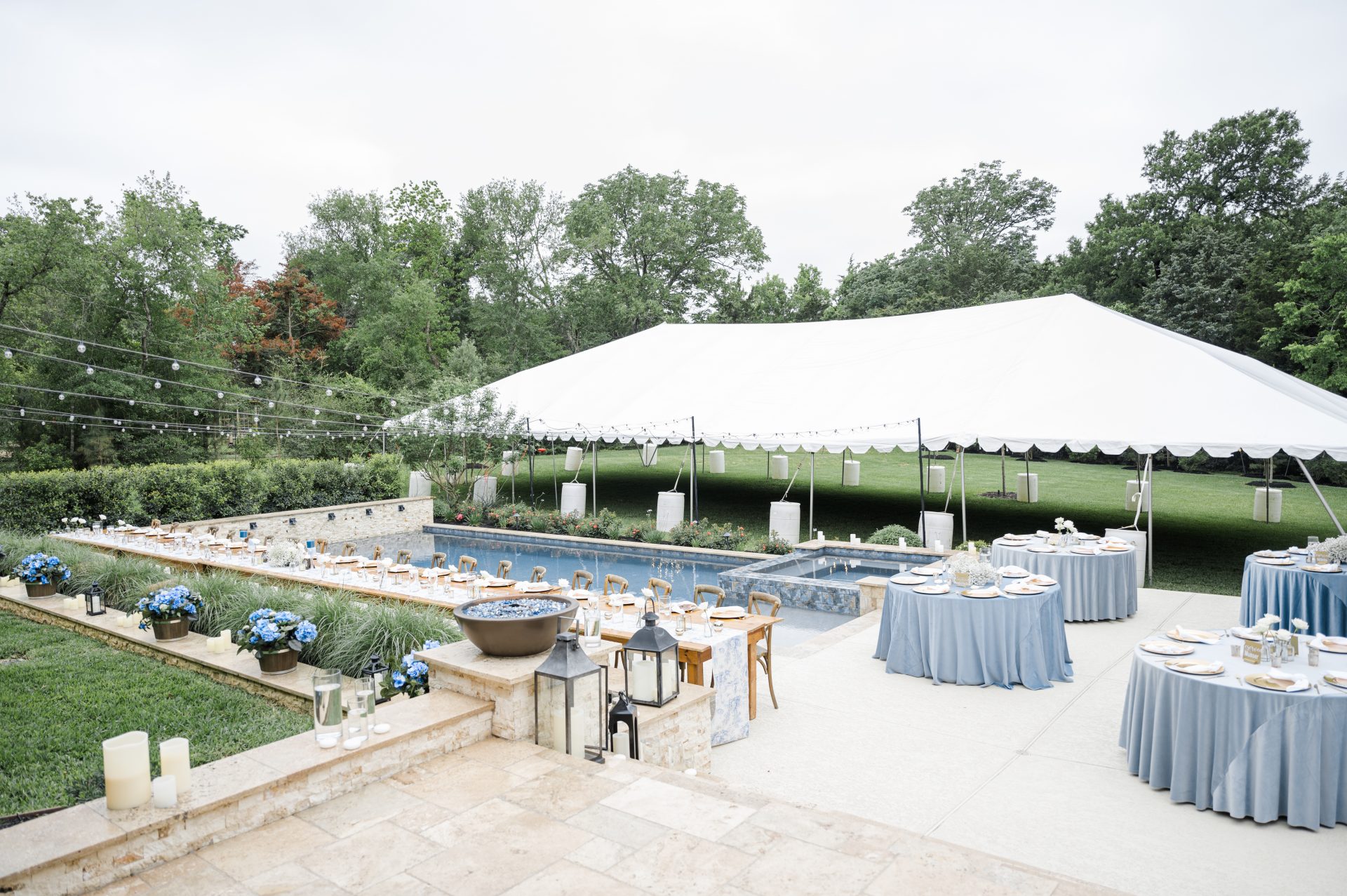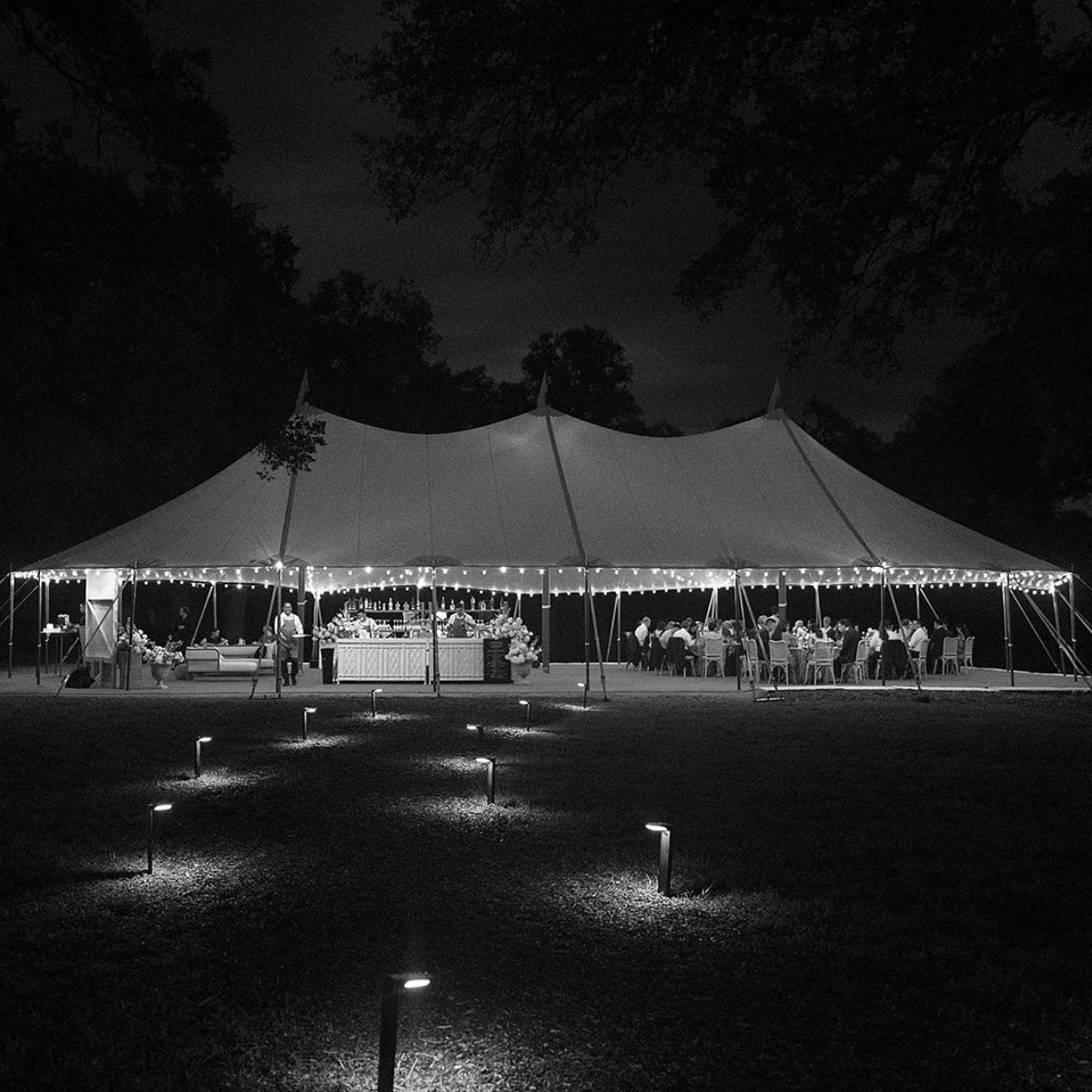Step 1 - Come to Terms With Tenting Your Event
Perhaps your goal is as straightforward as providing a functional tent to protect your guests from rain and weather. At the other end of the tenting spectrum, you may use a clear top tent, complete with bistro lighting, draping, and chandeliers to create a magical event setting. Each tent comes in a variety of sizes and some even vary in color! Whatever your goals, tents are a versatile, stylish, and often essential event alternative.
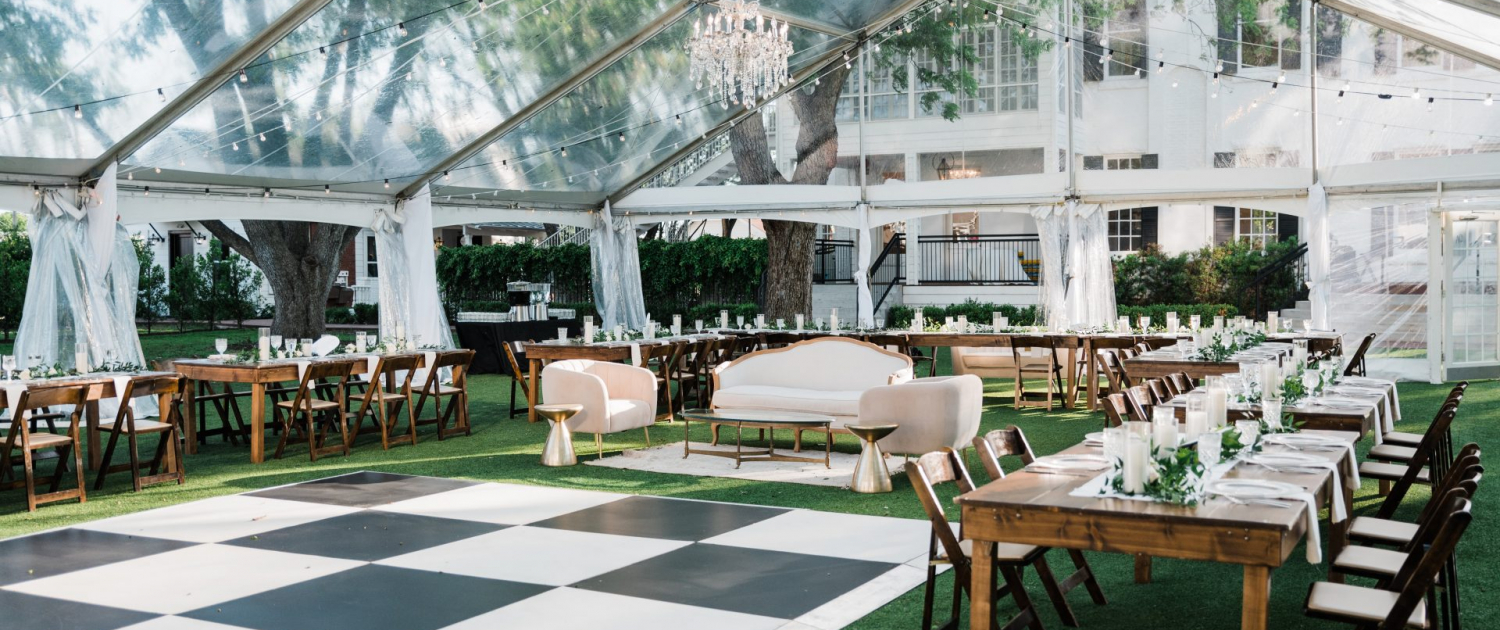
Step 2 - Determine Which Size Tent You Need
One of the most common requests we receive at Premiere Events is “Can I get a tent quote for [X] number of people?” Unfortunately, it’s not that simple. After all, it’s not just your guests that are going under the tent.
Here are a few handy questions to ask yourself when determining tent size:
- Do you need tables and chairs for all of the guests?
- Will you need to place a stage under the tent for a band?
- Will you need to fit a dance floor under the tent?
- Will the bar and/or food stations need to be under the tent?
- What about the cake table, sign-in table, gift table, photo booth, etc.?
Will the Tent Fit in Its Intended Space?
- Your Event Consultant will need exact measurements of the space to ensure that the tent will fit where you are wanting it to go.
- If you are unsure of the dimensions of the tent space, an Event Consultant can perform a Site Inspection and measure for you for an additional fee.
Beware Hanging Structures
No hanging structures are allowed to touch the top of the tent. Structures include but are not limited to:
- Tree branches/limbs
- Hanging Lights
- Chandeliers
- Power Lines
For an additional fee, an Event Consultant can build a CAD (computer-assisted diagram) to help you determine which size tent will best suit your event.
Step 3 - Select a Tent Style
Festival Tent
Festival Tents feature high, swooping peaks and tensioned fabric that provides a tight, clean look. Their center poles are suspended on cross cables which allows an absence of poles in the tent center. These tents are great for parties, concerts, school events, and corporate activities.
Festival Tents can be 10’, 15’, or 20’ wide and up to 40’ long.
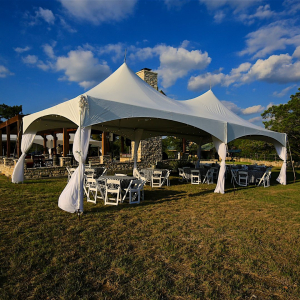
Frame Tent
Frame tents are the traditional party tent style. There are no center poles in frame-style tents, and the frame is sturdy enough to support lightweight accessories.
Frame Tents can be 10’, 15’, 20’, 30’, or 40’ wide and up to 100’ long.
Because of their scalloped perimeter, many customers opt out of using a Frame Tent.
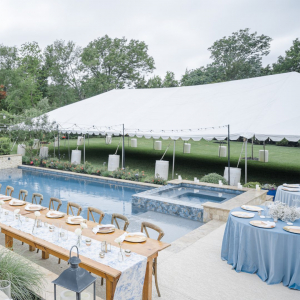
FRAME TENT WITH LEG DRAPES – SONDER PHOTO
Structure Tent
Structure Tents are engineered tents suitable for weddings, celebrations, and all events. The tent top slides through a channel in an extruded aluminum frame, allowing for a tight fit. Structure Tents are much stronger than frame or festival-style tents and can handle more weight for hanging accessories like lights, audio/video equipment, and décor. They also have a higher wind rating. Structure Tents are Premiere Events’ most popular tent style.
Structure Tents can be 20’, 30’, 40’, or 50’ wide and up to 120’ long.
Structure Tents have two different styles of tops:
Hip End
This design allows for two angled ends on the tent that last up to the center peak/pole.
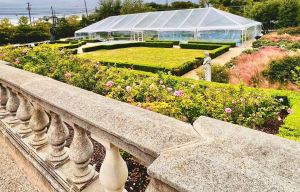
Gable End
This design allows for two vertical ends on the tent. A benefit of the Gable End Structure tents is that they can be butted up against other tents or permanent structures easily.
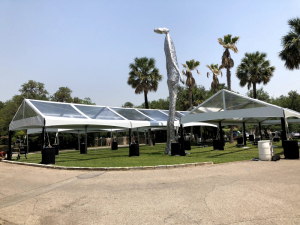
Clear Span Structure Tent
Clear Span Structure Tents are engineered to withstand greater wind ratings and can be much wider than the typical frame or lighter structure tents. The structure consists of very heavy beams and must be staked at all times. This tent requires a forklift for installation.
Installation of a Clear Span Structure Tent will take much longer than any other style of tent Premiere Events owns. The eaves of the tent are 13 feet tall and the center point is 26 feet tall.
The sizes of the Clear Span Structure Tent are 82’ X 82’, 82’ X 98’, 82’ X 115’, 92’ X 131’, 82’ X 147’
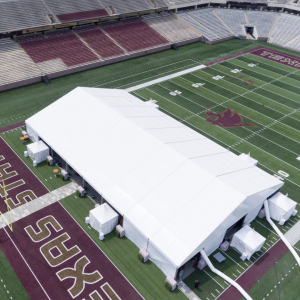
82 X 131 CLEAR SPAN TENT – Jerry Hayes Photography
Tidewater Tent
The Tidewater Tent is a typical pole-style tent with a twist. The ends of this tent are round, not square. The tops are made of a sail cloth which is translucent. The poles on this tent are powder coated to have a wood-style look. This tent is a beautiful tent but not recommended when it’s very hot out, as the top will create a greenhouse effect under the tent. This tent has center poles and must be staked at all times.
The sizes of Tidewater Tents are 44’ X 43’, 44’ X 83’, 44’ X 63’
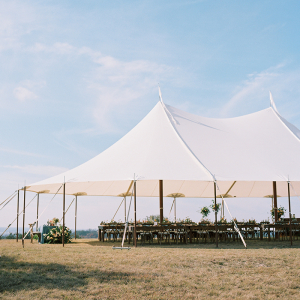
Step 4 - Determine How to Secure the Tent
Stakes
Stakes are included in the cost of the tent, but they are 3’ long.
Only use stakes on grass or gravel AND if there are no underground structures (sprinkler/irrigation system, septic system, etc.)
Premiere Events is not liable if any underground structures are struck by a stake.
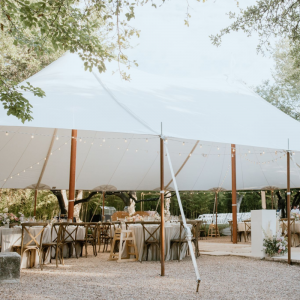
Barrels
If the tent is going on concrete or if stakes are not an option, water barrels may be used to secure the tent.
The number of barrels required for each tent depends on the size of the tent. The larger the tent, the more barrels are needed.
Tent Barrel Installation incurs additional costs and requires Water Access within 50 feet of the setup location.

Concrete Blocks
Our Concrete Blocks offer the most security for your tent beyond staking and have the added benefit of saving water, particularly if you do not have access to water on-site.
Concrete Blocks are not recommended for use on a concrete surface.
Block Installation incurs additional costs and requires the use of a Tractor on site.
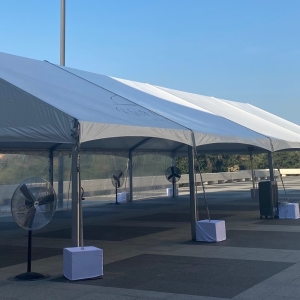
Alternate Options
Venues may have existing anchor bolts that the tent can be tied to.
There may be an existing railing around the tent site that the tent can be tied to.
Step 5 - Choose the Color of the Top
White Top
Almost every tent in Premiere’s inventory comes in a white top.
This is the most commonly rented tent, as it aids in the protection against bright sunlight and heat in the warmer months.
White tops are the more economical tent option.
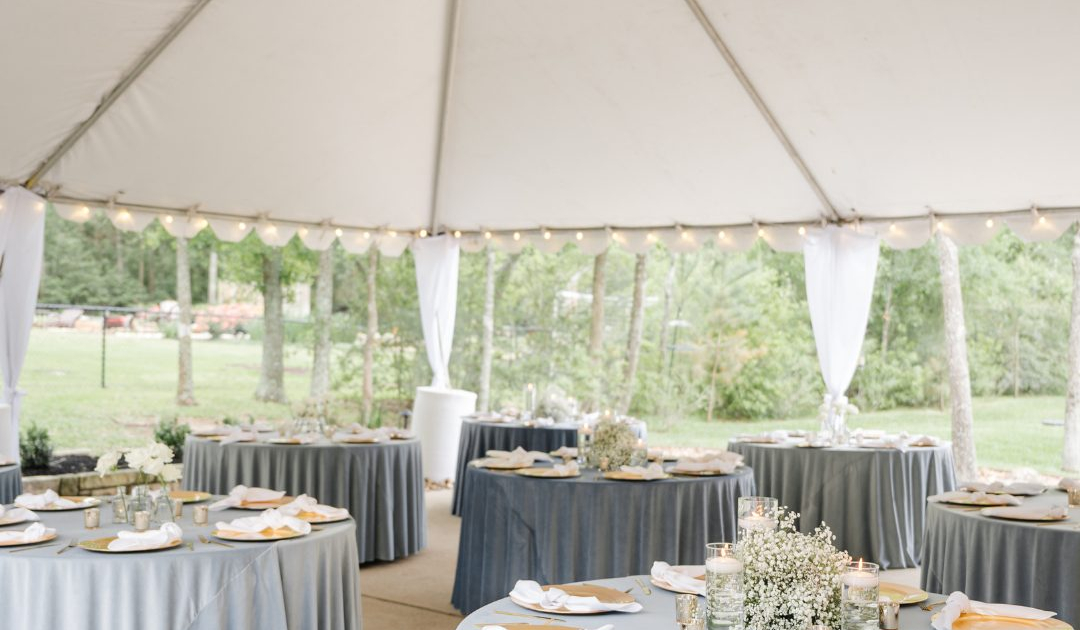
Clear Top
Some, but not all, tents in Premiere’s inventory come with a clear top option.
Clear-top tents are most commonly rented in the winter months, as they can have a greenhouse effect in the warmer months.
Clear tops are more costly.
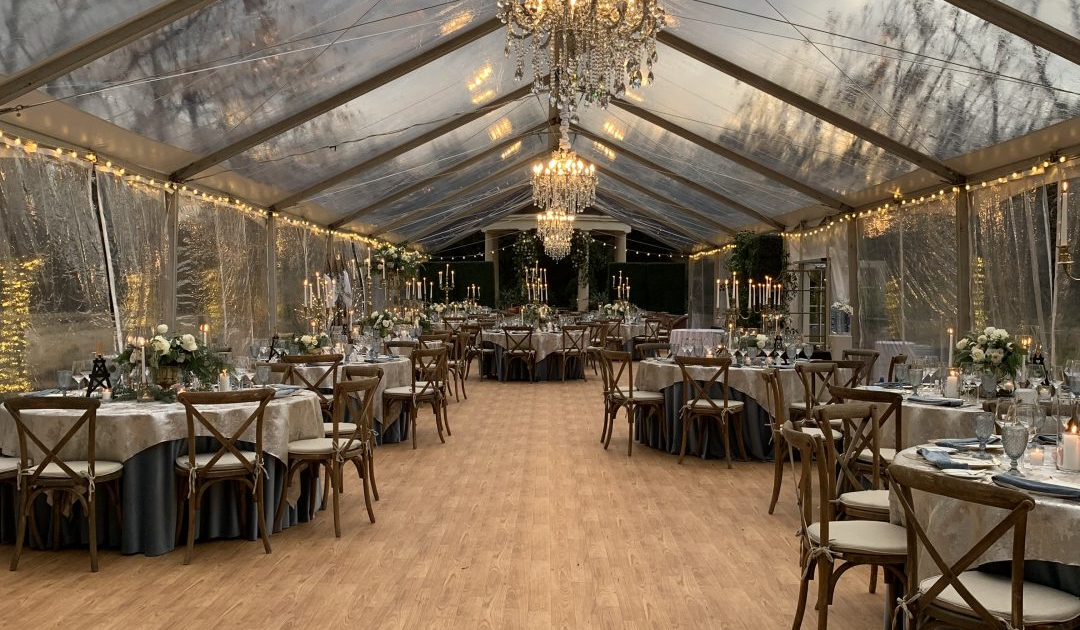
Step 6 - Select a Wall Style (If Wanted)
White Walls
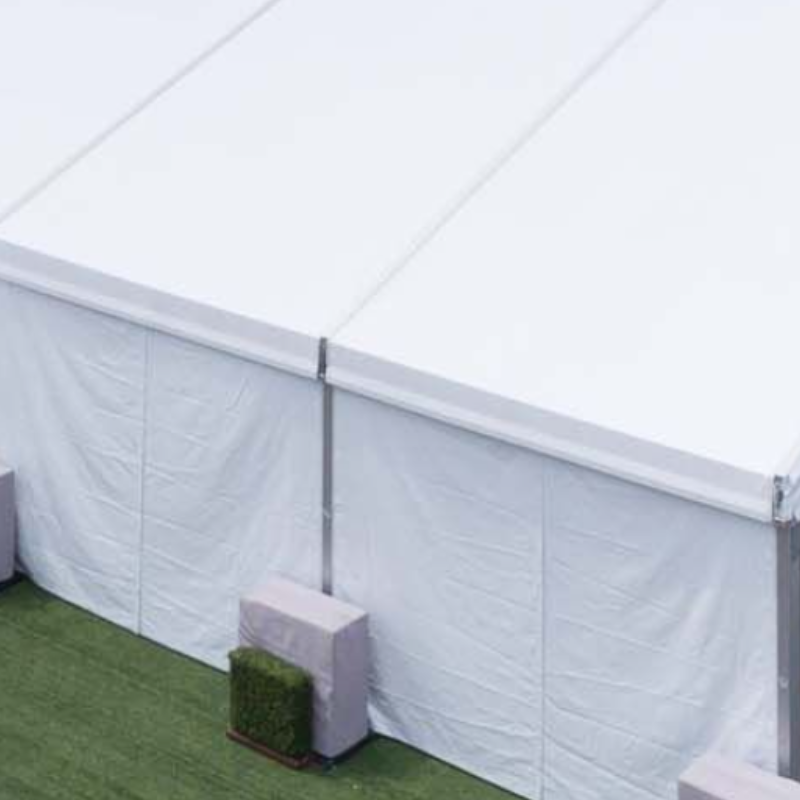
Clear Walls
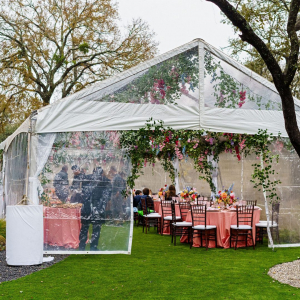
Window Walls
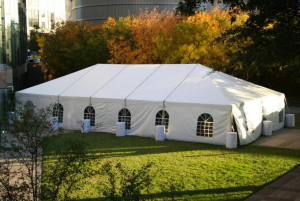
Step 7 - Select a Lighting Style
Festoon Lighting
3 Ways of Installing:
- Run Around the Inner Perimeter of the Tent (Most Economical)
- Draped Across Ceiling (Mid-Range)
- Run Around the Inner Perimeter and Draped Across the Ceiling (Most Costly)
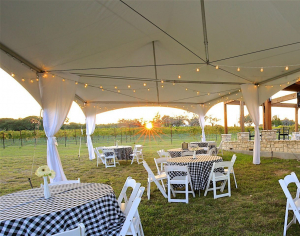
Par Can Lighting
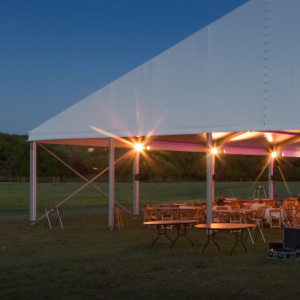
Step 8 - Add Climate Control (If Necessary)
Heaters
Tent Heaters Cost use propane but still require a power source.
One Tent Heater is Needed for Every 1,000 Square Feet of Tent.
Open-Flame Patio Heaters are NOT Permitted Under Tents.
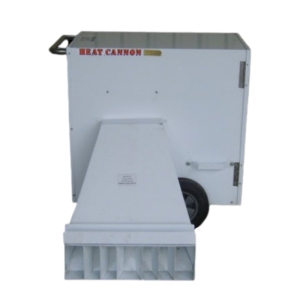
Fans
Premiere Events Does Not Provide Air Conditioning
Fans will blow air into a tent, but they are NOT the same as air conditioning.
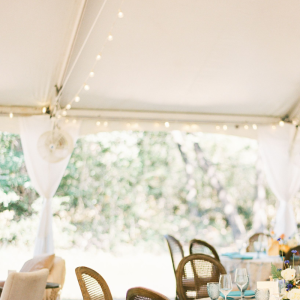
Step 9 - Add Other Accessories
Pole Swag
If you are not fond of the look of the metal poles supporting the tent, you may cover them with draping. We offer a standard 10-tall leg drape in white, however, if a different color is desired, a custom draping quote can be provided.

Perimeter Swag covering the horizontal poles at the inner base of the tent top
Tent Strap Sleeves to cover the straps to the stakes or barrels
Ceiling Treatment
If you are not fond of seeing the frame of the tent on the ceiling, you may cover it in one of two ways:
Draping
Ceiling draping adds warmth, elegance, and character to the ceiling, and is an affordable way of making a bold statement that your guests can’t help but notice. Premiere’s ceiling draping options include sails, waves, canopies, flowing vertical panels, and more.
Ceiling Draping is custom to your event. Contact an Event Consultant today for a formal quote.
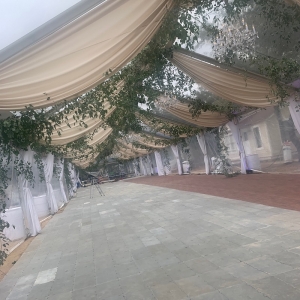
Tent Liner
A tent liner is a soft, billowy, white fabric lining that is installed in the ceiling of your tent. Tent liners bring style and texture to a plain, ordinary tent ceiling, and provide your guests the illusion of being in a permanent structure. Tent liners also disguise the tent’s structural components and provide a sleek, finished look.
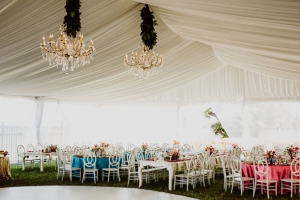
Step 10 - Secure a Tent Permit
The City of Austin has permitting requirements for some events and tents. It is your responsibility as the planner or event holder to secure any necessary permits. There are fees for permits that may be needed, and they typically request a 3-week lead time for all applications. Depending on your event, you may need to complete a separate ACE Application, but the form will prompt you accordingly. Please direct any questions you may have to SpecialEvents@austintexas.gov.
Permit requirements will vary by location. Please check with your local government for guidance.
Premiere Events does not offer permitting services, but we are happy to provide guidance as best as we can.
